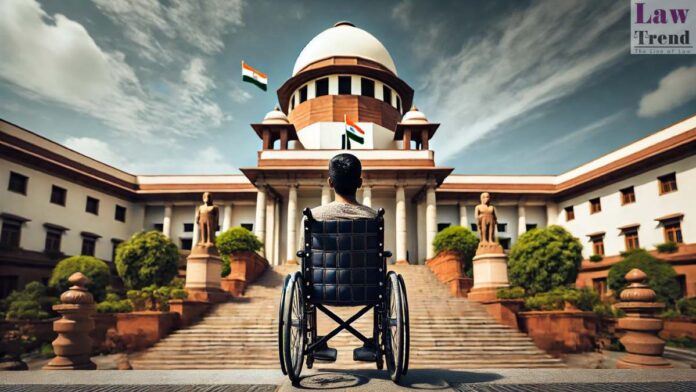In a landmark judgment expanding the scope of digital inclusion, the Supreme Court of India has ruled that the right to digital access is an intrinsic part of the right to life and personal liberty under Article 21 of the Constitution. The Court has directed the revision of existing digital Know Your Customer (eKYC) norms to ensure that persons with disabilities—particularly acid attack survivors and individuals with visual impairments—are not excluded from accessing banking and government services.
A Bench comprising Justice J.B. Pardiwala and Justice R. Mahadevan pronounced the verdict, with the judgment authored by Justice Mahadevan. The Court recognised that technological platforms, now essential for public and private services, must not marginalise persons with disabilities or those from disadvantaged backgrounds.
“The principle of substantive equality demands that the digital transformation be both inclusive and equitable… the right to digital access therefore emerges as an instinctive component of the right to life and liberty under Article 21 of the Constitution,” the judgment stated.
The Court issued twenty directions to make the eKYC process accessible for persons with disabilities, particularly those suffering from facial disfigurements due to acid attacks and those with permanent visual impairment. These directions are expected to be detailed in the judgment document once uploaded.
Background of the Case
The judgment came in response to two writ petitions—Pragya Prasun vs Union of India and Amar Jain vs Union of India—filed before the Supreme Court, seeking directions for the creation of an accessible digital KYC framework.
In Pragya Prasun, the petitioners included survivors of acid attacks who suffer from permanent disfigurement and eye injuries, making it impossible for them to comply with existing eKYC requirements. These requirements include facial movements such as blinking, head tilting, and positioning the face within specific digital frames—actions that are physically impossible for many petitioners.
The petition argued that such processes effectively deny access to essential services, including the opening of bank accounts and availing of government schemes. It further urged the Centre to define the term “live photograph” in the RBI’s KYC Master Directions, 2016, and to allow alternative methods that can accommodate people with facial disfigurements.
In the connected petition, Amar Jain vs Union of India, the petitioner, who is 100% blind, described systemic barriers in the KYC process, including the inability to take selfies, difficulties with handwritten signatures, and challenges with short OTP durations. The petition submitted that the existing framework discriminates against persons with disabilities and violates the Rights of Persons with Disabilities Act, 2016, and constitutional guarantees under Articles 14 and 21.
Court’s Observations
The Bench reaffirmed that the petitioners are entitled to protections and reasonable accommodations under the Rights of Persons with Disabilities Act, 2016. It emphasised that denying them equal access to digital infrastructure directly impinges upon their constitutional rights.
“It is imperative that the digital KYC process guidelines are revised with the accessibility code,” Justice Mahadevan stated.
“In the contemporary era where access to essential services, healthcare are increasingly mediated through digital platforms, the right to life under Article 21 should be re-interpreted in light of the technological realities,” the Court further observed.
The Court also stressed that inclusive governance cannot be achieved without extending digital accessibility to rural, illiterate, and marginalised populations, beyond just persons with disabilities.




